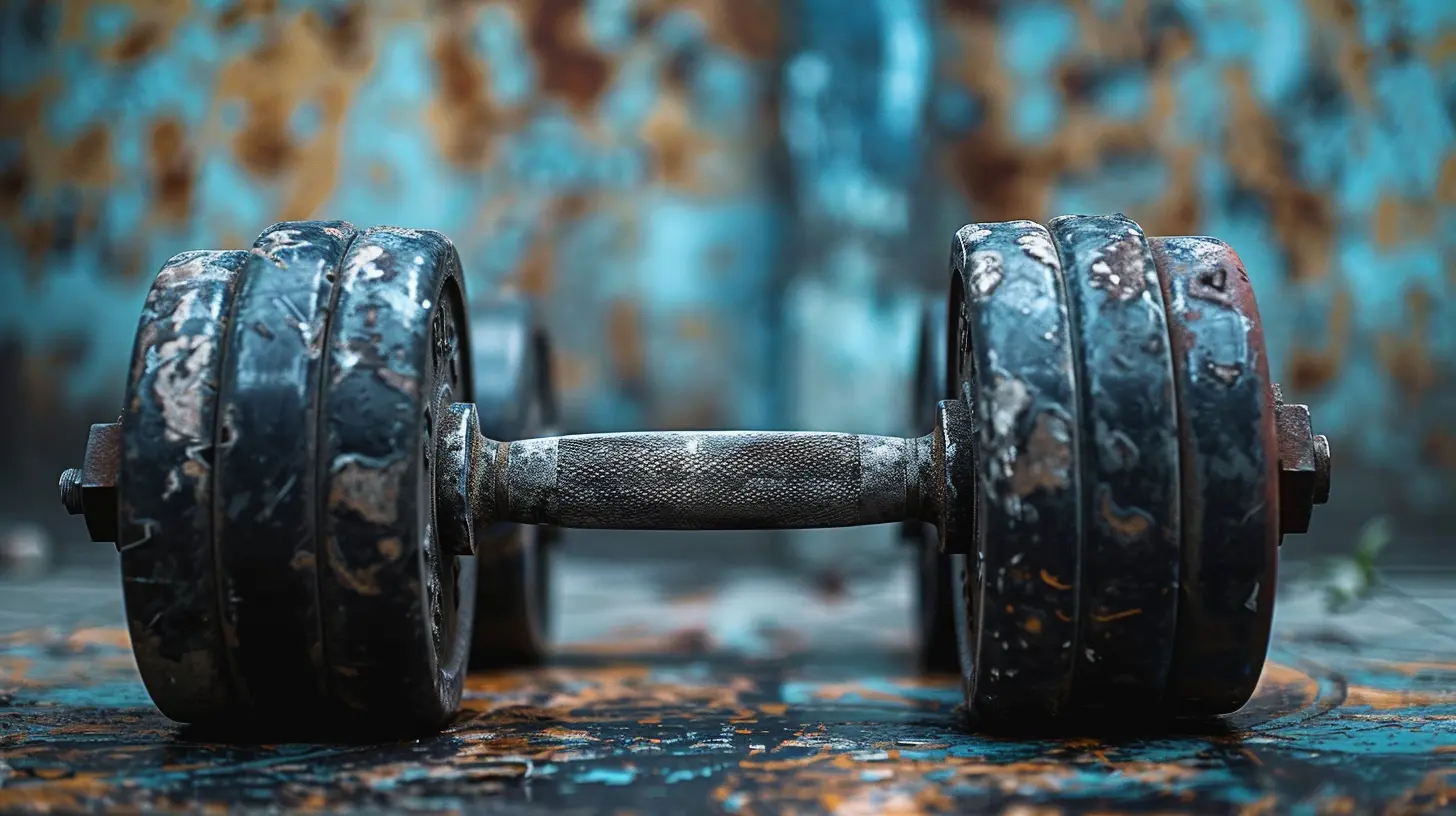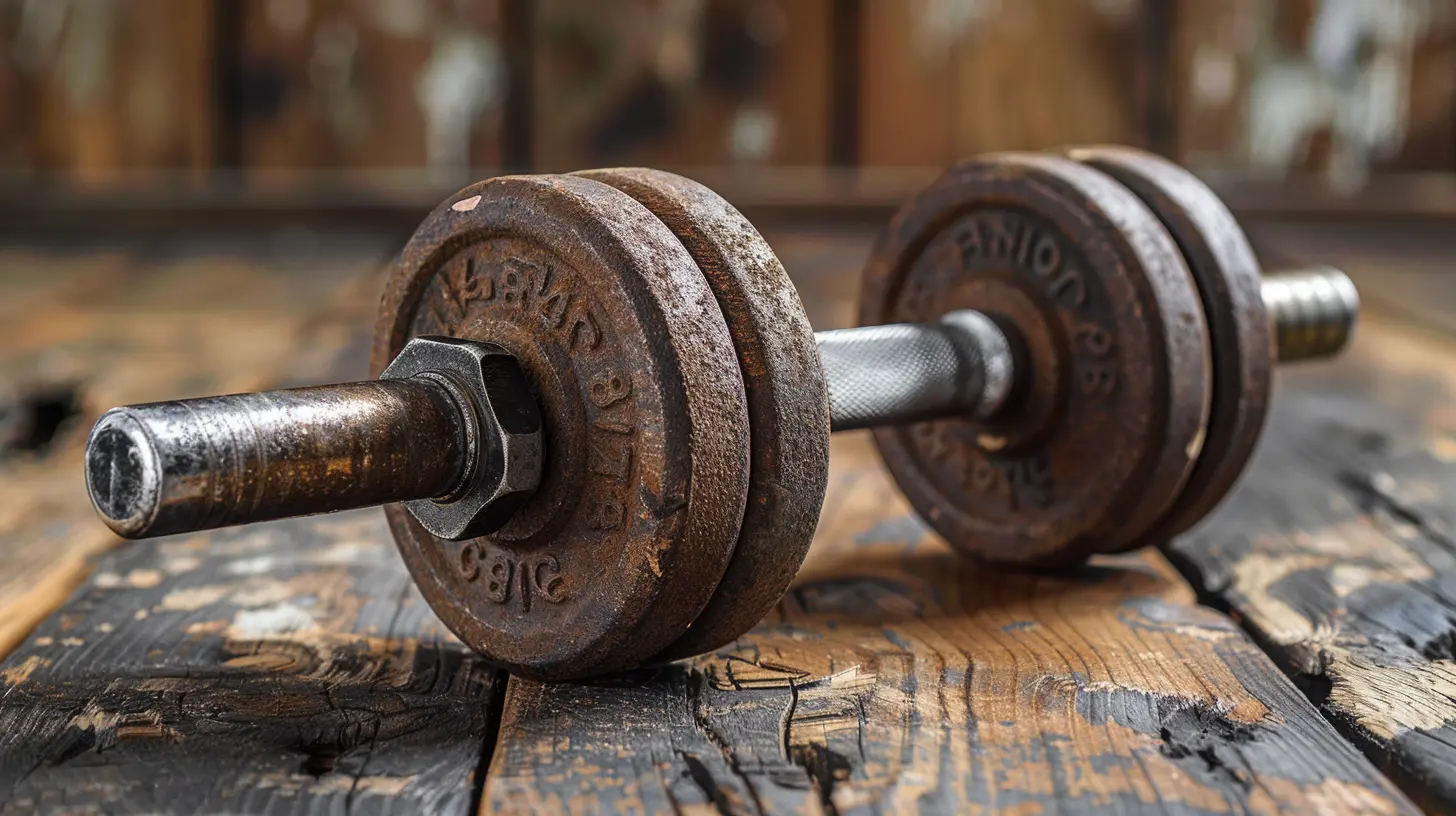How to Bulk Up without Gaining Excess Fat
29 August 2025
So, you’re ready to pack on some muscle, huh? Maybe you're tired of being the “skinny guy/girl,” or maybe you just want to fill out that shirt a little better. But here’s the kicker — you want to bulk up without getting fluffy. No one wants to put on 20 pounds only to realize half of it went straight to the belly. Good news is: it’s absolutely possible. Let’s talk about how to bulk up without gaining excess fat, step by step.
Why Most People Gain Fat While Bulking
Look, the traditional “dirty bulk” method is tempting. Eat everything in sight, lift heavy, and worry about the dad bod later, right? But loading up on junk calories doesn't just grow your muscles—it feeds your fat cells too. Sure, you’ll gain weight faster, but you might end up spending months trying to burn off the extra fluff afterward.So, the goal here is a lean bulk — where you build muscle without letting fat hitch a ride.
Understanding the Basics: Muscle Growth vs. Fat Gain
Before we dive into strategies, let’s get a quick grasp on how muscle and fat gains happen.- Muscle growth happens when you consistently stimulate your muscles through resistance training and provide them with adequate nutrients—especially protein and calories.
- Fat gain happens when you consume way more calories than your body needs, and you're not using them efficiently.
See the difference? It’s all about controlled intake and smart training.
Step 1: Find Your Maintenance Calories
This is the foundation. If you don’t know how many calories your body needs to maintain its current weight, you’re basically flying blind.How to Do It:
Use a calorie calculator (plenty of free ones online) to estimate your maintenance calories based on your age, weight, height, and activity level.Let’s say that number is 2,500 calories/day.
Step 2: Eat in a Small Surplus (Slow and Steady Wins the Race)
Now here’s where most people mess up. They hear “caloric surplus” and think “all-you-can-eat buffet.” Nope. That leads to fat gain real quick.Aim for a small surplus — about 200 to 300 calories above maintenance per day. So if your maintenance is 2,500, try eating around 2,700-2,800 calories/day.
That small bump gives your body the energy it needs to build muscle, but not enough for fat to sneak in.
Step 3: Track Your Macros (Not Just Calories)
Calories are vital, but the type of calories matters too. You wouldn’t fuel a race car with junk gas, right?Here's a basic macro breakdown for lean bulking:
- Protein: 1g per pound of body weight. This is the building block of muscle.
- Fats: Around 20-30% of your total daily calories.
- Carbs: The rest of your calories.
Protein keeps muscle synthesis going strong, carbs fuel your workouts and recovery, and fats support hormone health.
Apps like MyFitnessPal or Cronometer can help you track this easily.
Step 4: Strength Train Like You Mean It
If you're not lifting with intent, you're not going to build muscle — period. Nutrition alone won't cut it.Focus on:
- Progressive overload: Add weight or reps over time.- Compound movements: Squats, deadlifts, bench press, and pull-ups. These work multiple muscles at once.
- Train at least 4 days a week: Frequency matters.
Oh, and don’t just go through the motions. Challenge your muscles.
Step 5: Don’t Skip Cardio (Seriously)
Wait — cardio during bulking? You bet. A little cardio keeps your heart healthy, improves recovery, and helps manage fat gain.No need to run marathons — just add 2-3 short, moderate sessions each week:
- Brisk walking
- Light jogging
- Cycling
It boosts insulin sensitivity and keeps your metabolism humming.
Step 6: Monitor Your Progress (Scale, Mirror, and Strength)
How do you know if you're gaining muscle or just fat?Here’s what to track:
- Weight: Aim to gain about 0.5 to 1 pound per week.- Photos: Take progress pics every 2-4 weeks.
- Measurements: Especially waist and arms.
- Strength logs: Are you lifting more over time?
If your waist is blowing up but your lifts aren't improving — red flag 🚩. Time to re-evaluate your food intake.
Step 7: Supplement Smartly (Not Excessively)
Supplements can help, but they’re not magic. Focus on the basics:- Whey protein: Easy way to hit protein goals.
- Creatine: One of the most researched, effective muscle-building supplements.
- Fish oil or Omega-3s: Great for inflammation and heart health.
- Multivitamins: For those nutritional gaps, especially if your diet isn’t perfect.
Skip the fancy, overpriced stuff. Stick to science-backed essentials.
Step 8: Don’t Neglect Recovery
Muscles don’t grow in the gym — they grow when you rest.Make sure you’re:
- Sleeping 7-9 hours per night
- Taking at least 1-2 rest days a week
- Managing stress (yes, stress messes with hormones and recovery)
Think of recovery as the soil in which your muscles grow. No rest = no gains.
Step 9: Stay Consistent (Even When It’s Boring)
Let’s be real — progress can be slow. You might not see huge changes week to week, but that doesn’t mean it’s not working.Stick with it. Track your intake, train hard, sleep well — and repeat. Consistency always beats quick fixes.
Common Mistakes to Avoid
Let’s bulletproof your bulk by avoiding these rookie errors:- Eating too much, too fast: Leads to excessive fat gain.
- Neglecting protein intake: Muscle needs those amino acids to grow.
- Skipping workouts: No training = no stimulus for muscle growth.
- Ignoring cardio: You’ll feel sluggish and gain fat more easily.
- Not tracking progress: Guessing = stressing.
Sample Lean Bulk Meal Plan (2,800 Calories)
Just to give you an idea:Breakfast
- 4 scrambled eggs
- 2 slices of whole grain toast
- 1 cup Greek yogurt with berries
Snack
- Protein shake with banana and peanut butter
Lunch
- Grilled chicken breast
- 1 cup cooked rice
- Steamed broccoli
- Olive oil drizzle
Snack
- Cottage cheese
- Almonds
- An apple
Dinner
- Lean ground beef or turkey
- Sweet potato
- Mixed vegetables
Post-Workout
- Whey protein shake
- Rice cakes with honey
Keep it clean. Keep it balanced. Keep it tasty.
Final Thoughts: Building Smart, Not Just Big
Bulking doesn’t have to mean turning into a puffball. It’s totally possible to gain muscle without gaining a bunch of extra fat — it just takes a little more planning, patience, and discipline.Keep your surplus small, train hard, and monitor your progress. Think of it like building a house — one brick (and one rep) at a time. Before you know it, you’ll be bigger, stronger, and happier with your reflection in the mirror — no muffin top required.
all images in this post were generated using AI tools
Category:
Weight TrainingAuthor:

Holly Ellison
Discussion
rate this article
1 comments
Elias McHugh
Transform your body wisely! Focus on smart nutrition and strength training to build muscle without excess fat.
September 24, 2025 at 5:09 AM

Holly Ellison
Absolutely! Smart nutrition and strength training are key to building muscle effectively while minimizing fat gain. Thanks for the insight!


